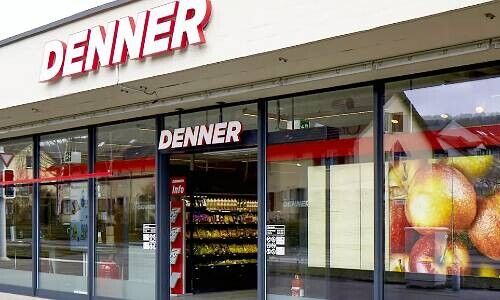Competition law was tossed out the window during the takeover of Credit Suisse and is now the subject of heated debate in parliament, but in the medium term, it will come into play. Therein lies an opportunity for the continued existence of the bank on its home turf.
The sheer size of the five trillion dollar asset manager resulting from UBS taking over Credit Suisse is the 800-pound gorilla in the room at the special parliamentary session in Bern. At both ends of the political spectrum in the councils, voices demanding keeping the behemoth in check are becoming louder. The Young Socialists, a youth organization connected to the Swiss Social Democratic Party (SP), but legally independent, even want to separate Credit Suisse from its buyer UBS and nationalize it.
While parliament initiated a future banking regulation in review proposals, its implementation will drag on for years. Competition law is proving to be more effective in shaping the new UBS/CS entity, especially in its home market. Although set aside for the March 19 takeover, the baton has been passed from the Competition Commission (Weko) the Swiss Financial Market Supervisory Authority (Finma).
Postponement isn't Cancellation
But postponed is not canceled. Finma will want to use the expected statement from Weko to put its stamp on the emerging banking giant.
This will not happen that quickly either. The buyer, UBS, must first officially complete the takeover of Credit Suisse and then provide Finma with the relevant competition law data to approve the merger. On that basis, Finma will instruct Weko to draw up an opinion on the takeover. Once available, Finma takes any measures that may be necessary.
New Territory for Finma
This is new territory for the authority. It became apparent at a press conference held by the authority last week, the supervisory body is not familiar with the role of being a competition watchdog. Finma has no means of intervening in UBS's strategy, as its chair Marlene Amstad explained.
A useful template is required, and as fate would have it one is available. In an interview with finews.com, an observer refers to a takeover that took place before the financial crisis. The purchase of the discounter Denner by the Swiss retail giant Migros in 2007. Although Denner had just ten percent of Migros' market share at the time, Weko only approved the deal subject to «drastic conditions.»
Seven Years of Independence
These conditions were set for seven years and primarily aimed at preserving Denner's operational independence over its pricing, product range, and location policy. In addition, the Denner brand had to be maintained and the sales outlets had to continue to offer a majority of branded articles. «Thus, consumers continue to have an alternative to Migros and Coop and the branded goods manufacturers retain the Denner sales channel,» the competition watchdogs decreed.
Can the «Denner model» serve as a template for the Credit Suisse takeover? At the request of finews.com, Weko Director Patrik Ducrey declined to comment. However, there is no standard solution, with each takeover considered separately in the application of competition law.
Nevertheless, operational independence ordered by the authorities would bring apparent advantages, especially for Credit Suisse's Swiss business, which could also defuse the situation for UBS, at least politically.
No Jobs Massacre
In the medium term, Credit Suisse's profitable Swiss Bank would remain independent and not have to break up its branch network, which is largely similar to UBS's. For the time being, there would be no competition law issues in areas such as corporate banking, where the two banks probably have a dominant market position in guarantees to companies.
Credit Suisse Switzerland's «prime cuts» such as investment banking and services for pension funds and institutional clients would remain untouched, meaning UBS would not have to fear the departure of its best talent. For politicians, the benefits are obvious. The country is spared the shock of 12,000 jobs lost and no significant erosion of the tax base.
Interested in Asset Management
With such a solution, UBS would remain a tough competitor in its home market. But as a buyer, it is primarily interested in Credit Suisse's international asset management. The flip side is the promised savings of eight billion dollars by 2027 wouldn't materialize.
A possible IPO of CS Switzerland would probably far outweigh the missed target: Analysts at JP Morgan assume in their latest report on the merger that UBS could raise at least ten billion dollars by taking the business public. At least for Migros, the Weko's drastic requirements have paid off. Since the takeover, Denner has been one of the most reliable profit drivers of the entire group.




































